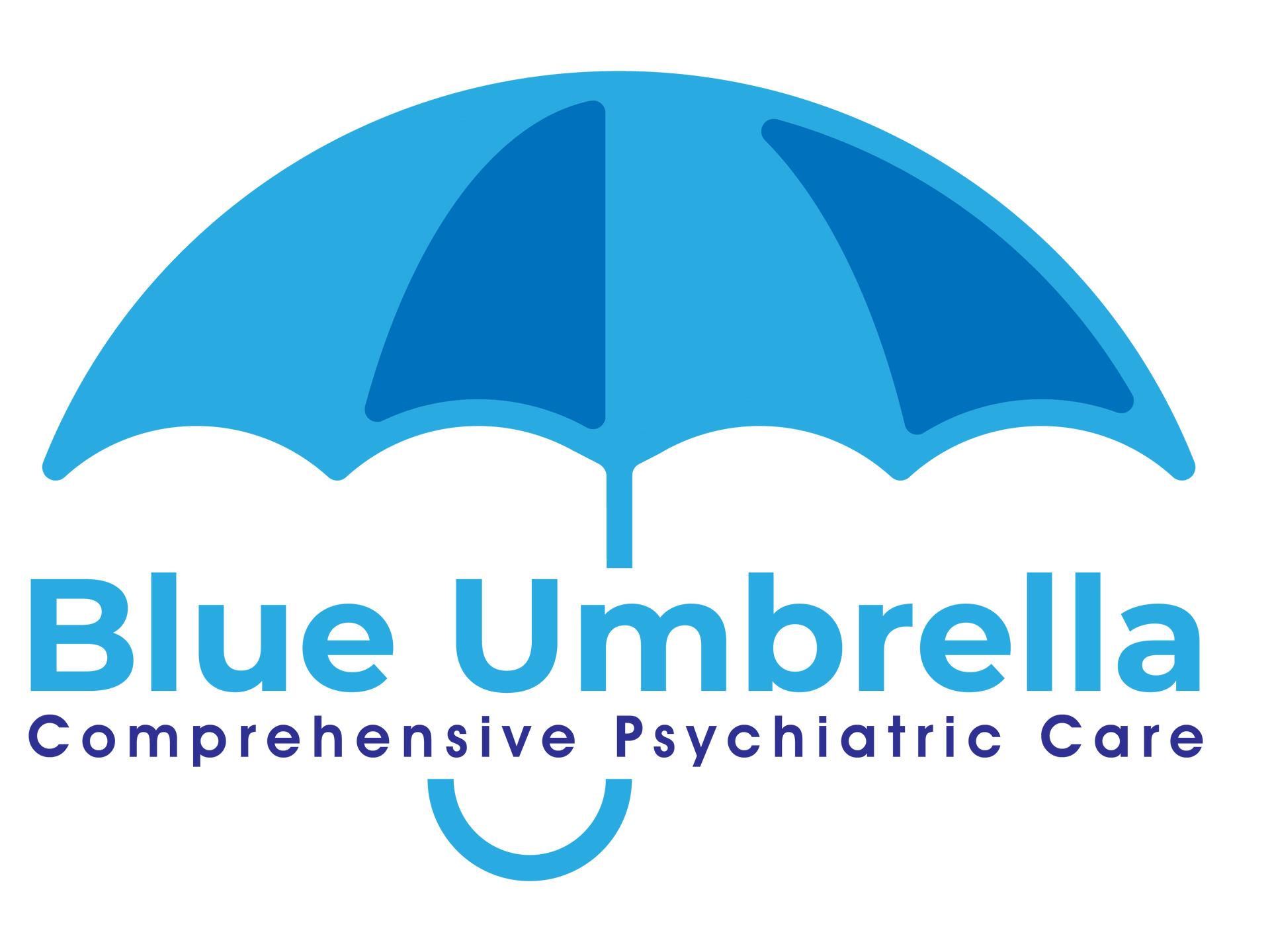Welcome to the Blue Umbrella Psychiatry blog! As we step into September, we're highlighting ADHD Awareness Month. This month is dedicated to increasing understanding and support for individuals with Attention Deficit Hyperactivity Disorder (ADHD), a condition that affects millions of people worldwide. At Blue Umbrella Psychiatry, we are committed to providing comprehensive care for those with ADHD, including medication management and supportive strategies. In this blog, we’ll explore ADHD, discuss how we can help with medication management, and offer additional tips for diagnosis and management.
Understanding ADHD
What is ADHD?
ADHD is a neurodevelopmental disorder characterized by persistent patterns of inattention, hyperactivity, and impulsivity. These symptoms can significantly impact an individual's ability to function effectively in various areas of life, including school, work, and relationships.
Symptoms of ADHD include:
- Inattention: Difficulty sustaining attention, making careless mistakes, losing things, and being easily distracted.
- Hyperactivity: Excessive fidgeting, restlessness, and difficulty staying seated or quiet.
- Impulsivity: Hasty actions, interrupting others, and difficulty waiting for one’s turn.
Impact on Life:
ADHD can affect various aspects of life, from academic performance and work productivity to personal relationships and self-esteem. Understanding the nature of ADHD is crucial for effective management and support.
ADHD Diagnosis and Treatment at Blue Umbrella Psychiatry
1. Comprehensive Evaluation:
Accurate diagnosis is the first step in managing ADHD effectively. At Blue Umbrella Psychiatry, we conduct thorough evaluations that include detailed assessments of symptoms, medical history, and functional impairments. This process may involve:
- Clinical Interviews: Discussing symptoms and their impact on daily life.
- Behavioral Assessments: Utilizing standardized tools and questionnaires.
- Collaboration: Working with other professionals, such as educators or primary care physicians, if necessary.
2. Medication Management:
Once diagnosed, ADHD can be managed effectively with medication and other therapeutic interventions. At Blue Umbrella Psychiatry, we offer specialized medication management for ADHD, including:
- Stimulant Medications: These are often the first line of treatment and include medications such as methylphenidate (Ritalin, Concerta) and amphetamines (Adderall, Vyvanse). They work by increasing the levels of certain neurotransmitters in the brain, which helps improve focus and reduce impulsivity.
- Non-Stimulant Medications: For those who may not respond well to stimulants or experience unwanted side effects, non-stimulant options like atomoxetine (Strattera) or guanfacine (Intuniv) can be effective.
Our medication management services include:
- Personalized Treatment Plans: Tailoring medication dosages and types to meet your specific needs.
- Ongoing Monitoring: Regular follow-ups to assess effectiveness, adjust medications, and manage any potential side effects.
- Patient Education: Providing information about your medications, including how they work and potential side effects.
3. Integrated Care Approach:
Effective ADHD management often involves a holistic approach. In addition to medication, we integrate other supportive strategies:
- Behavioral Therapy: Collaborating with therapists who specialize in ADHD to help develop coping strategies, organizational skills, and behavioral modifications.
- Educational Support: Working with educational professionals to implement accommodations and strategies that support academic success.
- Lifestyle Adjustments: Encouraging healthy habits, such as regular exercise, balanced nutrition, and adequate sleep, which can help manage ADHD symptoms.
Additional Tips for Managing ADHD
1. Seek Professional Help:
If you suspect you or a loved one may have ADHD, it’s important to seek a professional evaluation. Early diagnosis and intervention can significantly improve outcomes.
2. Educate Yourself:
Understanding ADHD and its impacts can empower you to manage the condition more effectively. Explore resources, attend support groups, and stay informed about the latest research and treatment options.
3. Develop Coping Strategies:
Work on strategies to manage daily challenges, such as using planners, setting reminders, and breaking tasks into smaller, manageable steps. Behavioral therapies and coaching can also provide valuable skills and techniques.
4. Build a Support Network:
Connecting with others who understand ADHD can provide emotional support and practical advice. Consider joining support groups or online communities for individuals with ADHD.
Need Support?
At Blue Umbrella Psychiatry, we are here to support you every step of the way in managing ADHD. Whether you need medication management, therapeutic interventions, or guidance on coping strategies, our team is dedicated to helping you achieve better mental health and quality of life.
If you have questions or would like to learn more about our ADHD services, please contact us. We are here to assist you in navigating your ADHD journey with care and expertise.













